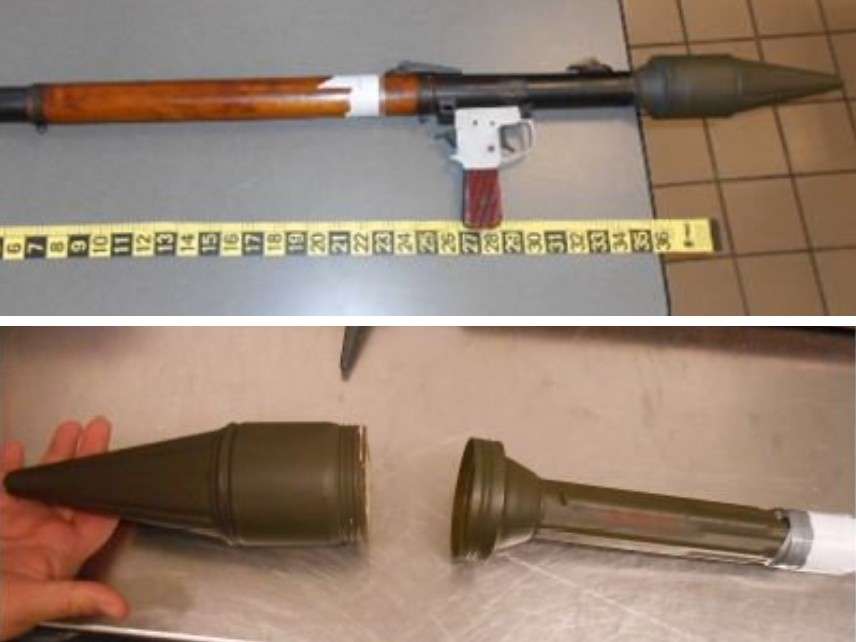Media Outlets Spread Fake News About TSA Seizing 'Rocket-Propelled Grenade Launcher'
They're just helping the TSA push its scaremongering narrative.

Did you hear the scary news? The Transportation Security Administration seized a military-style rocket-propelled grenade (RPG) launcher at a Pennsylvania airport! Thanks goodness for the TSA's diligence, otherwise we might have had a Grand Theft Auto rampage-style situation on our hands!
Except, this news is not entirely true. One might even call it fake.
According to a TSA press release, a Florida man flying from Lehigh Valley International Airport to Orlando checked a bag containing "unassembled parts of a rocket propelled grenade launcher and grenade." It's not until midway through the release that the TSA notes "the device was not a functioning launcher and the grenade itself was determined to be a realistic replica." The TSA claims (incorrectly) that "no realistic or replica weapons" of any kind are allowed on planes, even if they're in checked luggage. In reality, firearms and ammunition are permitted, though RPG launchers are not.
.@TSA officers detected the unassembled parts of a military rocket propelled grenade launcher in a man's checked bag at @FLYLVIA yesterday. When assembled, the launcher was determined to be non-functioning and the grenade an inert replica. (Thank goodness!) pic.twitter.com/hrBt5ECdpJ
— TSAmedia_LisaF (@TSAmedia_LisaF) March 5, 2019
A surprising number of outlets, no doubt looking for shock clicks, didn't include in their headlines the rather important fact that both the launcher and the grenade didn't work. "TSA stops man traveling with 'military rocket grenade launcher' in bag," claimed Fox News. "TSA confiscates parts of rocket-propelled grenade launcher at Pa. airport," said The Hill. According to ABC News: "TSA confiscates rocket-propelled grenade launcher at Pennsylvania airport."
The New York Daily News and New York Post's stories on the incident had similarly misleading headlines, as did a variety of local TV stations, including KDKA, KYW-TV, WESH, KMOV, KNSD, and WNEP. Each of these outlets did say in the text of their stories that the grenade launcher was non-functioning (meaning it couldn't actually hurt anyone). But that's more than just burying the lead. There's a huge difference between a working grenade launcher and a replica. The TSA misled news consumers, and so did most of the media outlets who picked up the story. (The Associated Press and USA Today did include sufficient information in their headlines, but they were the outliers.)
This is all part of the larger problem of outlets spreading falsehoods, which Reason's Robby Soave explored in detail on Tuesday. Unlike with Momo, "prayer rugs," and "Skittles parties," this instance is a bit more of a grey area. Sure, the TSA found "parts" of an RPG launcher, but if TSA agents concluded that the RPG was safe, why did the agency feel the need to promote the story?
Because it's sensational and kind of scary, and it creates the impression that the TSA is all that stands between you and me and a lunatic sneaking his rocket launcher onto a commercial flight. Yet just as is the case with this supposed rocket launcher, the TSA seems to be much better at confiscating plastic toys and bullet-shaped ice cubes than evaluating actual risk.


Show Comments (34)